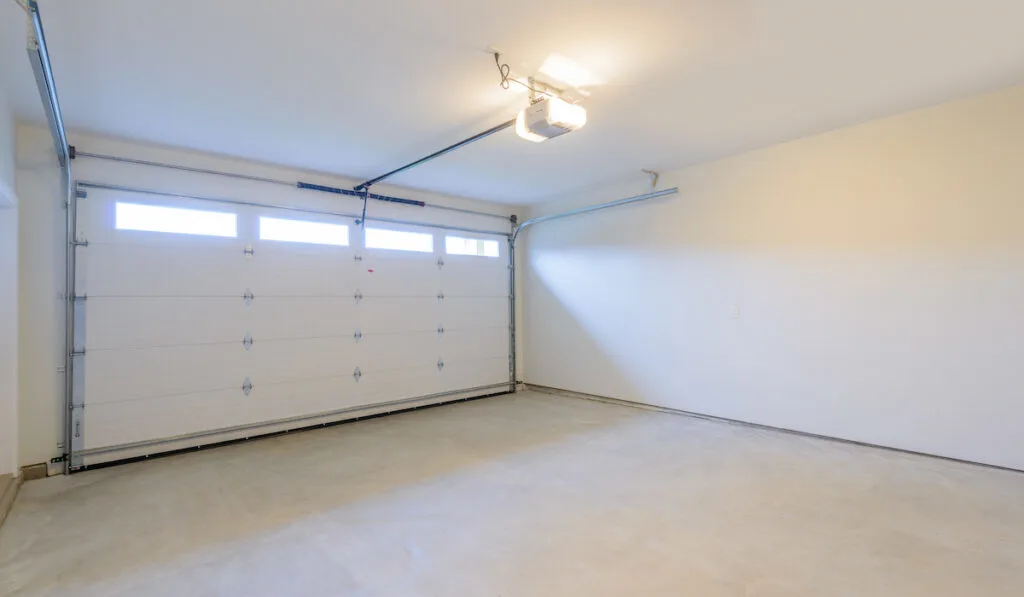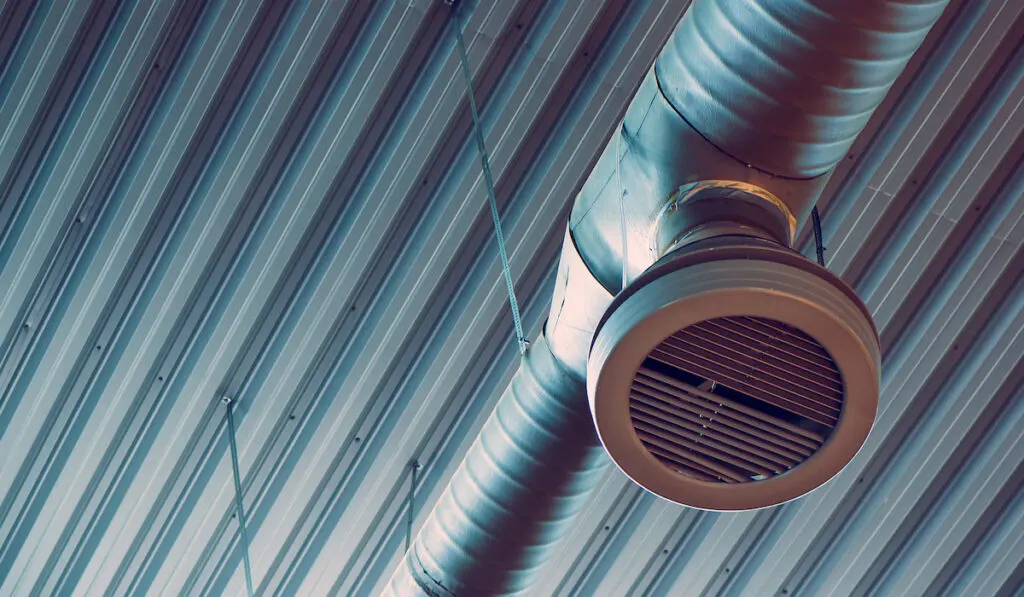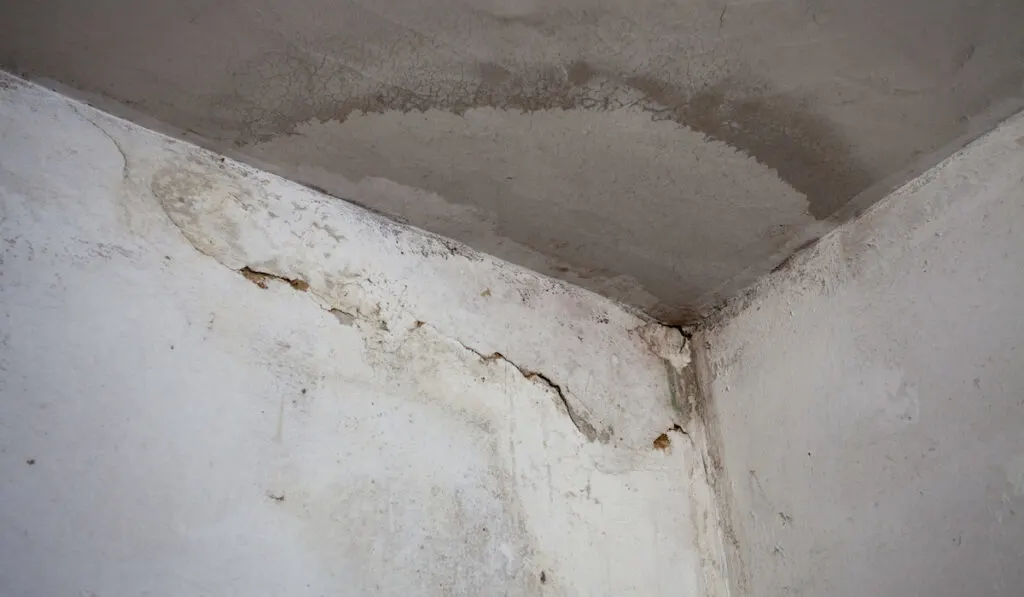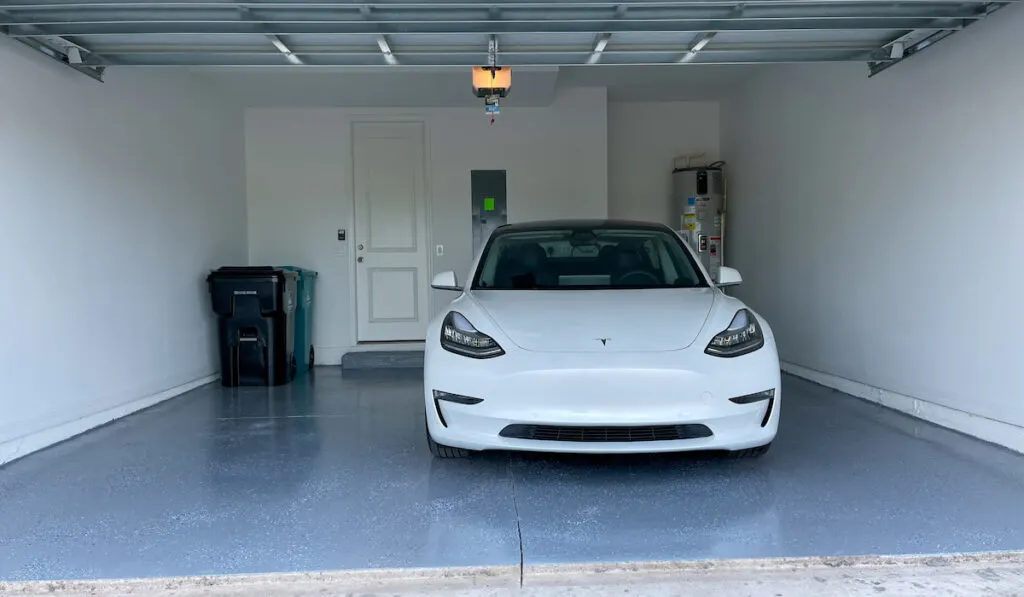*This post may have affiliate links, which means I may receive commissions if you choose to purchase through links I provide (at no extra cost to you). As an Amazon Associate, I earn from qualifying purchases. Please read my disclaimer for additional details.
Stepping into a garage riddled with high humidity is uncomfortable, especially if you’re turning it into a workstation. Not only does high humidity make the garage uncomfortable, but it can also wreak havoc on your tools and vehicles. There’s also the possibility that it will introduce mold and mildew to the area. But don’t worry- there are many ways you can avoid excessive humidity in your garage.

How do you control humidity in a garage? There are 8 effective ways to avoid high humidity levels in your garage. These include:
- Increasing Ventilation
- Using the Air Conditioner
- Using a Dehumidifier
- Installing a Vapor Diffusion Retarder
- Always Keep it Dry/Check for Leaks
- Making Sure the Drainage is Working Properly
- Getting Rid of Cardboard Boxes and Excess Clutter
- Installing a Floor Coating
If you’re ready to say sayonara to high humidity in your garage, you have come to the right place. We will be discussing how these 8 tips for controlling humidity in a garage actually work and how you can apply them to your own garage, whether it’s attached or detached.
Table of Contents
Top 8 Ways to Control Humidity in a Garage
Keeping humidity under wraps in your garage doesn’t have to be a challenge at all. With these 8 handy and useful tricks, you can handle any humidity that comes your way. Your home will thank you, too, as you no longer suffer from excess heat or problematic mildews seeping into your living quarters.
1. Increase Ventilation

The best way to combat humidity is to ensure that there is proper ventilation in your garage. This is the first and more important step to complete control.
If your garage has a window, make sure it’s open as much as possible. If not, you might want to consider installing a garage door with windows. The sunlight will work as an anti-humidity barrier and take care of the issue.
If you don’t have any windows and don’t have extra cash to throw at a new garage door, then you may also want to consider installing a fan to the ceiling or purchasing an industrial floor fan.
Fans of any type will keep the air moving in your garage, and therefore reduce the chance of humidity building up.
If you live in an area that is naturally very humid, this airflow may help, but it is likely you’ll need to employ a supplemental method to reduce humidity.
2. Use the Air Conditioner
If you are lucky enough to have an air conditioner built in your garage, then you should be using it when needed. Using an air conditioner can help evaporate excess moisture.
Simply put, an air conditioner is going to keep your garage moisture-free while also keeping it cool and temperate. This is ideal for all garages, but especially those that are being used as a workspace.
On the downside, this moisture reducing effect only occurs while the air conditioner is on so, it may not be a practical way of reducing garage humidity unless you work in the garage frequently.
3. Use a Dehumidifier
Unfortunately, not everyone has their air conditioner set up to reach the garage. But don’t worry- there is another great method that can help to suck out excess moisture and leave your garage humidity-free: a dehumidifier.
The best thing about using a dehumidifier is that it’s a cost-effective solution to anyone struggling with humidity in their garage. You likely already have a dehumidifier on-hand for when you’re stuck in bed with a cold, so all you need to do is reach into your hall closet, grab your trusty dehumidifier, and plop it in the garage.
If you don’t have a dehumidifier, now is the time to get one. If you need to purchase one, we suggest buying one that is big enough to handle the size of your garage (and eventually the size of your troubled sinuses).
4. Install a Vapor Diffusion Retarder

If you are planning to insulate your garage (and you should), one thing to consider is adding a vapor diffusion retarder or air barrier directly in with the insulation.
Adding a vapor diffuser to your garage will stop a good amount of moisture from seeping into your garage and causing humidity.
These used to be called ‘vapor barriers.’ However, since they do not stop moisture completely, people are beginning to call them vapor diffusion retarders. You’re likely to hear either phrase, depending on who you are talking to.
5. Always Keep the Garage Dry/Check for Leaks
If you haven’t figured it out by now, moisture = humidity. So if there is any extra moisture in your garage, then it’s going to end up raising the humidity levels. Here are a few tips to keeping extra water out of your garage:
- Dry your car off when entering the garage during rain and snowy weather. While this might not be the first thing you think about, it should be. Any moisture that is left on your car will end up raising humidity levels in your garage, so it’s best to run a towel over it when you park inside.
- Check for leaks, commonly caused by nearby plumbing inside of the home. Any leaks should be handled to avoid more water entering the garage. Sometimes these fixes may require a professional.
- Get rid of the extra fridge or freezer in the garage that can accumulate too much water and end up leaking. Even though these appliances may be handy, they can be a cause for humidity concerns in your garage- especially if you’re dealing with older models.
- Check for holes and cracks around the garage. If you notice any of these near the ground, they should be patched up using caulking or expanding foam. This will keep any outdoor leaks from entering your garage.
6. Make Sure the Drainage is Working Properly
Any type of drainage that is found in your garage should be inspected regularly. Whether on the ceiling or the floor, drainage systems can commonly become obstructed or clogged and will need to be manually fixed in order to function properly.
7. Get Rid of Cardboard Boxes and Excess Clutter
Did you know that cardboard makes for a great feeding ground for molds and mildews? To keep these bacterias from growing in your garage, you should try to limit how much cardboard is out in your garage, especially for storing things. Replace it with airtight plastic tubs.
You should also make sure that excessive clutter, in general, is kept at bay. When there is far too much clutter in a garage, there is less room for ventilation- and we all know what happens when there is a lack of ventilation in a garage.
So go ahead and do some spring cleaning year-round and always make sure that your garage is kept neat and tidy to avoid the potential pitfall of high humidity levels.
8. Install a Floor Coating

Last but not least, you may want to consider installing a specialty floor coating to your garage. Some floor coating options, like polyaspartic floor coating, can keep your garage from becoming far too humid. (Polyaspartic technology is similar to polyurethanes.
Aside from being able to whisk excess moisture out of your garage, specialty floor coatings can help to protect your garage floors from becoming damaged over time.
They act as a protective covering that defends splits and cracks while locking in moisture and keeping it from raising humidity levels in your garage. They also look great, so there is that!
Conclusion
High humidity levels in your garage are not only uncomfortable, but they can be damaging, too. Excessive humidity can lead to corrosion and mildew or mold growth. It can also lead to the rest of your home warming up. Luckily, you can avoid high humidity levels by increasing ventilation, getting rid of moisture using an A/C or dehumidifier, installing vapor diffusers, checking for leaks and inspecting the drainage system, installing a floor coating and keeping the garage clean.
